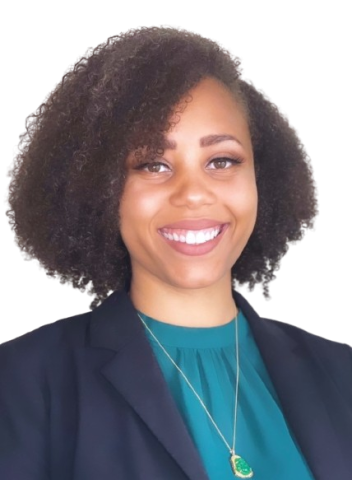Lauren N. West-Livingston, MD, a second post-graduate year (PGY-2) integrated vascular surgery resident at Duke University, embodies vascular surgery's diverse and vibrant community. As a dedicated spouse, mother and a proudly bi/pansexual woman, West-Livingston's multifaceted identity enriches her professional and personal life, making her a beacon of representation and advocacy in the medical field.

“Pride means the freedom and empowerment to unapologetically represent all aspects of yourself and see the beauty in the many identities we hold,” Westi-Livingston said. This ethos is reflected in her commitment to fostering inclusivity and understanding within the medical community.
West-Livingston highlights the significance of education and awareness during Pride Month and throughout the year. She encourages people to learn about LGBTQIA+ terminology, history and the issues affecting the community globally and locally. She advises attending local Pride parades, considering volunteering or donating to LGBTQIA+ causes and engaging in political advocacy to create lasting positive changes.
Being a good ally, according to Dr. West-Livingston, involves a combination of empathy, advocacy and continuous self-improvement. “There are innumerable ways to be a great ally, including willingness to listen, empathy, advocacy for those with less privilege than you and self-reflection and desire to learn and grow. Most importantly, it's being an advocate for others in situations where it's uncomfortable, and because it's the right thing to do, regardless of recognition or praise,” West-Livingston said.
Creating a safe space for LGBTQIA+ patients is essential in medical practice. West-Livingston outlines strategies from her 2021 Journal of Vascular Surgery (JVS) publication to promote inclusivity: designing physical environments that welcome LGBTQ+ patients, being familiar with terminology and using inclusive language in all healthcare communications, fostering a supportive clinical atmosphere, considering Safe Zone certification for oneself and colleagues and understanding that you cannot determine someone's gender identity or sexual orientation just by their appearance or partner, thus asking respectfully and honoring their identities.
West-Livingston asserts that representation in medicine, especially in vascular surgery, is essential for providing comprehensive care to diverse patient groups. She notes that because many vascular surgery patients belong to underrepresented or marginalized groups, the workforce must reflect these demographics. By ensuring diversity in race, ethnicity, socioeconomic background, gender identity, sexual orientation, training background and practice type, the field can gain multiple perspectives and ultimately enhance patient care.
West-Livingston underscores the importance of supporting the SVS Foundation in celebrating the Voices of Vascular campaign. “Vascular surgery is a small but mighty group of providers that serves a unique patient population, often including individuals historically oppressed in medicine and society. Support of the SVS directly contributes to promoting a diverse workforce, recruiting excellent trainees, and providing our patients with compassionate and comprehensive care, especially for the vulnerable patients that need it the most,” she said.
West-Livingston's insights highlight the importance of diversity, advocacy and education in fostering an inclusive environment for patients and professionals in vascular surgery. Her commitment to these values enriches the community and helps pave the way for a more equitable future in medicine.
When you donate to the SVS Foundation, you support Voices of Vascular's important work in promoting diversity, equity, and inclusion. Learn more and make your gift today.
